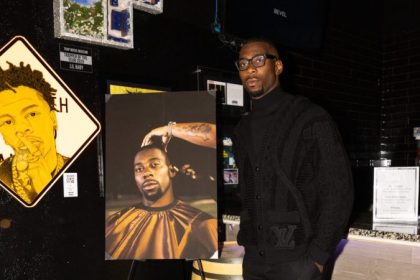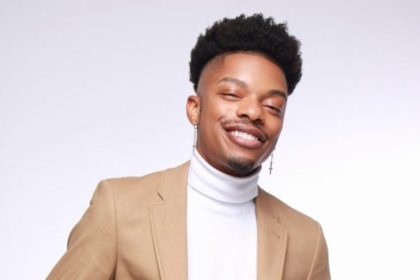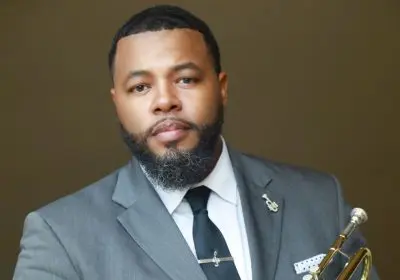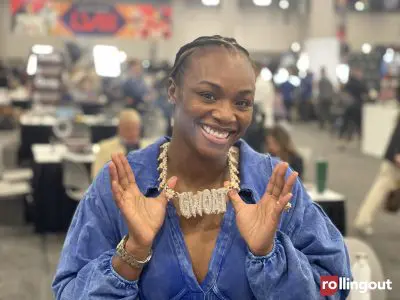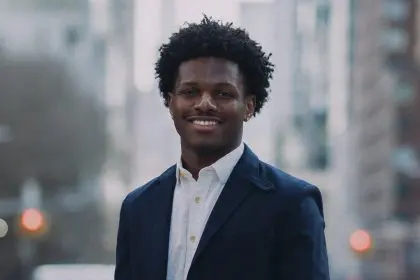Before diving into the rich dialogue of the Star Studio interview, let’s introduce the talented cast members of ‘For What It’s Worth’ who shared their insights:
- Leslie Black plays Fallon Worth, a character that embodies strength and resilience, navigating complex emotional landscapes in the series.
- Patrice Covington portrays Naomi Samuels, bringing depth and authenticity to her role through nuanced performances.
- Kevin Savage steps into the shoes of Gerard Worth, whose dynamic portrayal adds a significant layer of intrigue and drama.
- Jared Wofford as Malik Worth, ties the narrative threads together with a performance that underscores familial and communal bonds.
Now, let’s hear directly from the cast as they discuss their experiences, the chemistry on set, and the impact of their work on audiences and themselves.
Munson Steed: Hey everybody this is Munson Steed and welcome to star studio. Here, on rolling out. We have an all star cast. I’ll let them introduce themselves, and we will start with the beautiful queens of the night. Miss Black, you want to start.
Leslie Black: Sure thing. Hey, everybody! My name is Leslie Black. I play Fallon Worth on For What It’s Worth.
Patrice Covington: Hey, What’s up Everybody! I am Patrice Covington. I play Naomi Samuels.
Munson Steed: Kevin.
Kevin Savage: What’s going on, you guys? Kevin Savage here. I play Gerard Worth.
Jared Wofford: Hey! What’s up, everybody? This is Jared Wofford, and I play Malik Worth.
Munson Steed: When you think about really, all star cast, which is what you have, you can depend on each other. What would you say to young writers, and we’ll start with the ladies on how you just have to have that chemistry to know that this project means something to everybody? So give your best. Can you kinda share, Patrice, if you will, what it’s like to create that whole geling factor that is so critical to success?
PC: Well, you don’t always have that time but when it’s good it’s good. We have what you share in common, and we’re black. Everybody black grew up. We all went to the same church. We all got the same aunties. We got the same mom, and we got the same daddy. So we have a lot of experiences to share, and everyone was just open to sharing those experiences very quickly, so that we could do what needed to be done to tell the story.
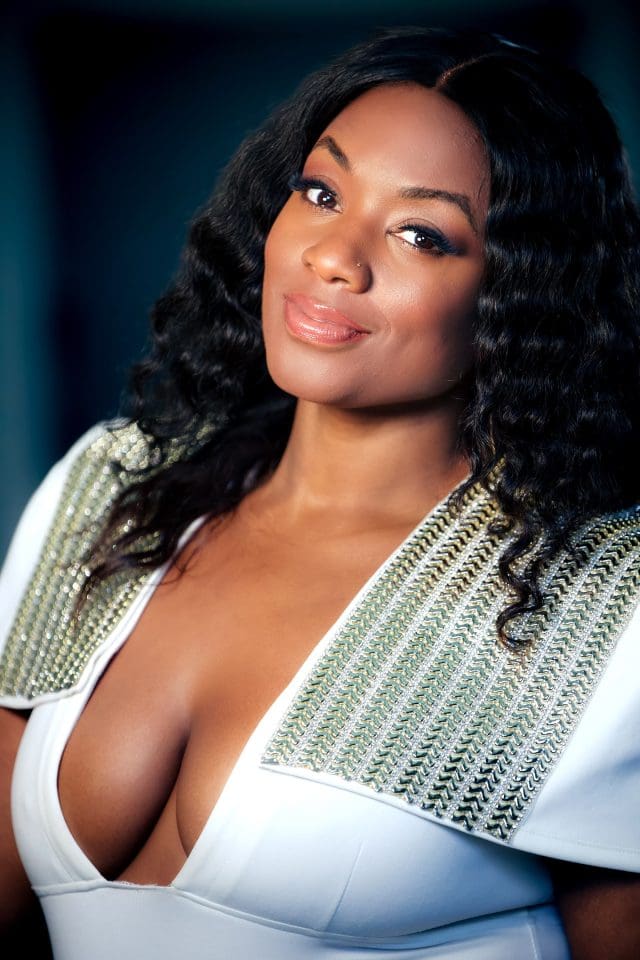
LB: Yep.
MS: So what did you take away from Miss Black? What did you take away from Patrice that you didn’t have? When you first started this film.
LB: I think me and Patrice, we definitely gel very well. I think I was able to take away a feeling of real sisterhood because we were just, I feel like we organically gel. So, I was very appreciative, but I also felt like the casting did a really good job of being able to mesh personalities together. So yeah, I think I think you would agree, Patrice. When we met we knocked it out, and I feel like it felt like really good, genuine chemistry.
PC: Yes, I would agree with that, too. It’s just fun.
MS: For people who don’t know what that is, because everybody thinks you’ve got 10 months to make a film, how important Kevin is knowing your lines and having time for those young individuals that think, “I can do it 20 times.” You don’t have 20 takes, do you?
KS: No, I come from the world of theater. So, I’m just used to it, because in theater there is no, you get another take. You just gotta be prepared and ready. And so, to me it’s kinda the same and in film like in my mind. I just know that when I get on set, I wanna be as prepared as possible because the more prepared you are, the less time you’re gonna take. There’s no extra money that’s gonna be spent into production because we gotta shoot your scene over again. And everybody’s dependent on you. So yeah, it’s very important.
MS: When you, Jared, looked at this storyline. What makes this storyline special? And how will it allow black people to grow, and how they see themselves in this world?
JW: Well, I think what makes this story special is, we have a female lead, Patrice and Leslie, and then we also have Kevin leading and I’m coming in, as well as the glue that keeps kinda tries to keep the family together, and all 4 of these characters are adopted. That’s something special and all 4 of these characters have their own mental hangups, or maybe mental health issues or physical health issues that they could be dealing with. So, I think it’s a very realistic project that hopefully will be a great opportunity for the viewers to have a dialogue. And look at their familiar relationships, or their other relationships, and try to come together with people and help each other.
MS: When you think about the therapy that happens when you’re actually in character. What did you feel when you were actually given your lines with Trice, and really having to express emotion. Where did you go?
PC: There’s a lot of emotion expressed. All different types. if you look at the trailer, it’s tears, a lot of tears. But the tears end up being for several different reasons from different people. In the movie. I don’t want to tell it so…
MS: No.
PC: I won’t talk about the mental health therapy portion. But I think that it is enough. I think that the story from all of us is enough to encourage, to nudge, to be like, wait a minute. Is that me? To pose a question, to see if there is something that you may need to see a therapist about, to get further help on. It introduces a lot more than just the normal things that us as black people, we might say something like, she’s just an angry black woman, or she’s just mad. When really there are real terms, real medical conditions or mental health concerns. That would be the reason why someone would be acting like that and moving about their lives in that way. So, I think it is all the expression of emotion and tears, and the journey itself is just motivating, if nothing else, to get someone to just open an eye to themselves or someone that they love to get some further help.
MS: But we’re on BET, and you, when you think about adoption, you think about these emotions. What kind of storytelling are you giving the community that you think is different, Miss Black? And will allow us to understand that the black community is a special place, and it, and it needs to be sacred.
LB: In terms of the storytelling, I think that I just think it’s important. I think about the places in which the movie went. It highlighted all those different topics about mental health, all the different things about adoption. I feel like I don’t think it’s necessarily something that the black community is missing but I think it’s something that isn’t spoken about a lot, and I think that with the storytelling, being able to see the nuances with each character. I just kind of feel like it’s something everybody can relate to in all honesty. Mental health is a big component that we deal with on a daily basis.
I actually have a family member that is suffering from mental health, that so I’ve kind of had to see how the world itself doesn’t really know how to deal with mental health, and I think that a lot of people don’t know how to express themselves. So, that component by itself, I think, is very important in terms of the storytelling. But I don’t know. I feel like it is something that the black community will be able to relate to, because I feel like the nuances in the stories are things that we don’t really talk about. Honestly, we talk about the fund, the bling, the girls, things like that. But things that really can help us grow as people, because we get to see it on other people are the things that I think story wise that bring out the best of the movie, pretty much.
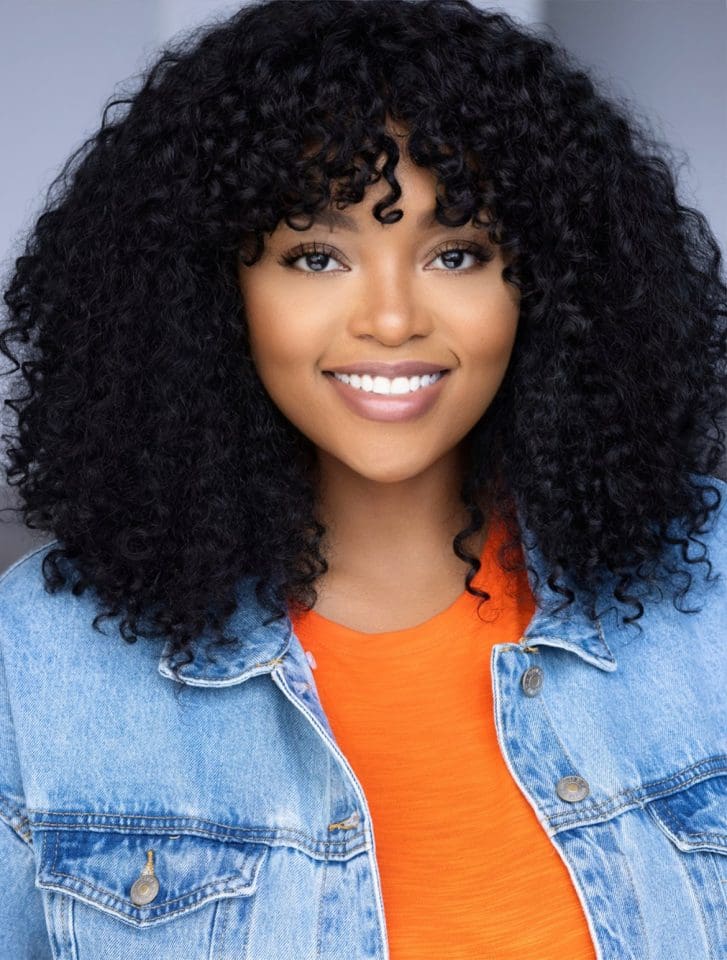
MS: Yeah. And I guess the thing here in Star Studios is for young actors and other people, Kevin. Who are really trying to know you’ve gotta go inside yourself to bring something special out. How do you practice that skill set for young actors, or just actors who are really trying to figure out what methods and why to go to class, so that, you just can’t holler on set. You really have to get into character. How often did you stay in character? And what did you do to really kind of prepare for your character?
KS: I mean, there’s different methods. I mean, you have Sandy Meisner. You have Stanislavsky. You just kinda have to take some classes to know which method kind of works for you. For me, Meisner. I just really like going deep within and just like really going hard with trying to portray that character, because you are that character. When you get cast, I think a lot of actors make the mistake of trying to be somebody else. But when casting sees you in auditions, they’re casting you first and then you’re bringing whatever it is. You know your salad, you mix it to tomatoes and cucumbers, whatever you wanna add to your salad to kinda complete that character and make it your own.
But it’s very important to come from a place of training. And for me, I mean, it was just really really easy. I was telling Patrice all the time, like she reminds me of my older sister, and so just her. It’s so amazing and Leslie, you hit it right on the nail. Just the way they cast us was just like it was God. Because I felt like I’ve already worked with you guys, me and Jared, we’d work together before. So it was really easy. So the role of Gerard was just really just just so easy and just to the point where it’s just more so fun. And just, really just being honest with myself and making sure that I’m truthful.
MS: Jared, you had a chance. When you think of brothers on set and working together. What does that mean in Hollywood? When brothers began to know that they’ve got bodies of work that over time, young men will look at both of you and say, those brothers stuck it. They nailed that character, but they also bonded in understanding that there’s some compassion and brotherhood, even in this industry that would pit you guys against each other, wanting one to shine more than the other. You really push for the whole family to come online to talk about this project.
JW: Well, I mean, I think our movie “For What It’s Worth.” There’s definitely that unity. And I think in any organization or industry we wanna try our best to unify, especially as African Americans or people of color, whatever you wanna call it. And I know for this cast to kind of piggyback on what Kevin was saying. Like everybody came to work. Everybody knows themselves, everybody knows their characters, so like I was grateful to just have so many great actors, in Kevin and Leslie and Patrice that were available, empathetic, understanding, and it just helped me suspend, any disbelief or any anxiety, because they’re doing what they do best and what they’re great at.
I admire my cast members. I’ve seen Kevin work on shows that I was on, but I didn’t get to work with him. And then, later on, we’re working together. Patrice, we have some mutual friends. Leslie, I’ve seen her work, so I think it’s important to take care of yourself. Understand the craft, pursue your passions and then also just trust the people that you’re working with, when you’re given that opportunity and you’re aligned on that project. Trust that you’re gonna do what you need to do to be prepared. And you’re gonna honor and respect and trust that your castmates are gonna be prepared, because that’s when the magic happens. And that’s what we have here with our cast.
MS: Patrice, describe some of that magic that you felt when you were on set, and and when you noted that’s a part of you that you left in the film that will speak to everybody cause it was magical.
KS: Hmm.
PC: When you are filming like, and you don’t. You haven’t met everybody, and it’s a whole bunch of people coming in doing a whole bunch of things at one time. It sometimes doesn’t feel like magic. It feels like chaos. And when the people can come together for a common cause to tell a story. And we all are fighting for the dream, the passion behind it all, like everybody, has worked hard to get to these moments. We’ve had everybody on set from crew to cast, have had this. This career can be the most heartbreaking and the most rewarding, all at the same time. It’s worse than any relationship I’ve ever been in.
So, like when people can come together regardless of the chaos and create something that looks good. That tells a story that has an audience that enjoys it. I think that alone is magical. That we have a common love for the craft, for the art, everybody has taken classes, whatever method works for you, it all comes together to tell one story. Some people ain’t never taking no classes and still you come together and you tell a magical… You have a magical experience. I think that’s the magic of it all.
MS: For many young actors who are going to look at this body of work that you guys put together, Miss Black, what do you want them to know that you’re saying to the black community about healing? And how we can actually heal through seeing these examples that you’re giving us?
LB: I want them to know that there’s hope. I want them to look at the project and see themselves and other people. I want them to. I really want them to feel and I feel like this particular project. You gon’ feel this. You definitely gon’ feel this. You’re gonna walk away feeling like, you know what this person battled but this person overcame. This person was heartbroken, but this person triumphed. It’s so many different things that people are able to take from it that I think really heals, because I healed. I healed doing this project.
So, I think that’s why it’s so. It’s so personal and so dear to me, because we ourselves, as the cast, saw a piece of us in each character, and I think that’s what made it so beautiful. So, my hope and my desire would be that people do walk away with healing in some type of way, just by watching us battle. Because in the end we all do, at some point we triumph. And if we can do it, then so can you.
MS: Well, I love that, and I think that the trailer was great for me. ‘Cause I think anytime you can go into a hospital room and begin to understand the anxiety that a community that a family has to face. So significant.
LB: Very.
MS: Kevin, what was that like? It’s a crisis and now the community and a family has to come together, as an actor moving through that crisis, and also sustaining the realness about it. What are you sharing? And what would you share with other young actors now that you’ve done this body of work? That they all need to understand that it means something to be prepared and to deal with these real issues in our community?
KS: Just knowing what acting is. Doing the best that you can, and just really putting yourself in that position. And so for me, having visited a lot of hospitals, friends being shot, and different things. That’s nothing new for me, so I could draw from a personal place. But just as an actor just really staying in it, because if you’re acting, you’re not doing your job. You’re taking imaginary circumstances, and you’re making them real to you.
And so when you come from that place and you realize like this is, now this is really happening. I think that’s when the magic happens, when you’re not so focused on remembering your lines. But you’re prepared like we spoke about earlier, and you can just go in there and you can just play, and you can just be. I think, when people see that on screen, they’re most affected by it.
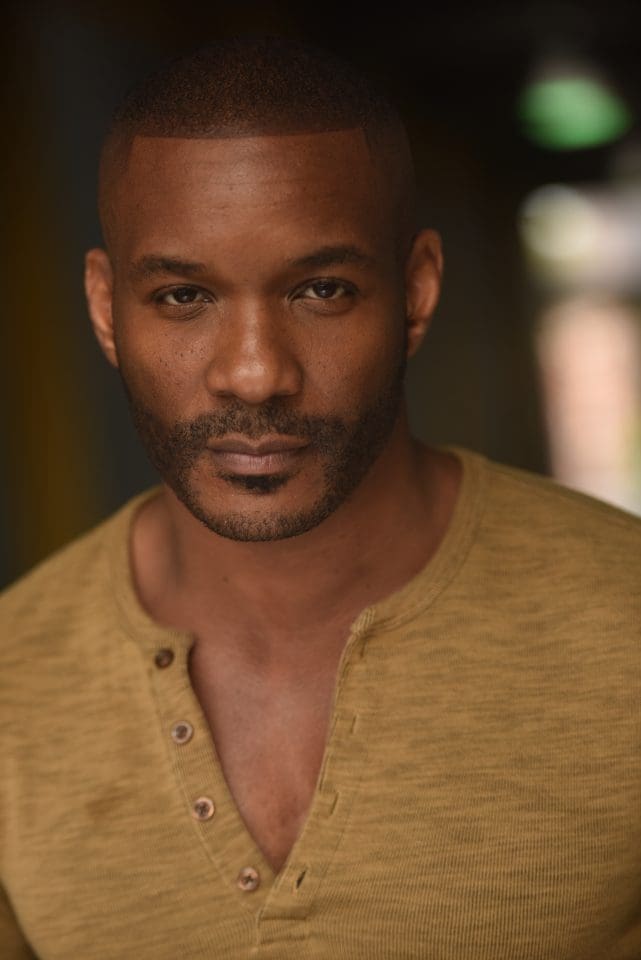
MS: Thanks for that. And for star studio, we try to have a little closer look. And, Kevin, you talk about it. But when you know you’re in character, for that young person is at a Morehouse, now that you got it, and Howard and all these young people are really looking up to you guys to say, Fam, we can be in this industry. What would you say to them, Kevin? About this is our time and bring your A game. What would you share with them about really understanding the differences? It’s not just the line, you’ve got to be really that person.
KS: Just be ready. Do everything that you need to do to be prepared. I tell you young actors all the time, preparation is key. You don’t prepare when you’re there. You stay ready. You ain’t gotta get ready. So take your classes, even headshots. Because your head shots or your calling card. They see that before they actually see you a lot of times and that’s your representation. And so, make sure that you’re shooting people that can really capture who you are. I mean, just so many places that you just have to be really, really, really, really prepared, and just know that you can do it. I mean, if this is something that you really wanna do. Confidence is everything.
You can’t let people tell you that you can’t do it. I mean, if this is something that you really, really have a passion for. You gotta be ready for the nos. There’s for every yes that you’ve gotten. I know, for me, anyway, I’ve gotten at least about a couple of 100 nos, but it’s the passion that I have for it. And I like to, whenever I’m doing my classes and workshops. One of the questions I asked my actors is why do you wanna do it? You say you wanna act? Why? What’s your reason? What’s the purpose? And so, just have a good reason. Know that you’re meant for this. You’re born for this, and this is what you wanna do. And regardless of how many nos that you’re gonna get. That one yes, I’m sure all of us can attest. That one yes, makes it worth it. And you move from there.
MS: Thanks, Kevin, for that. How many people would give up a career, Jared? To become an actor and choose another career. When you can just be a businessman and move and how did you know it was the calling for you?
JW: Man. Well, I had a career. I had the corporate career I was doing well and could have done better. But, just want to fulfill. And I think, like, I’m an artist. I think we’re all artists, and we offer artistic talent. And I would, just remember, like, when I was younger, my mom gave me an opportunity to act but I chose basketball and community events in the Chicago area. So, but I always would. As I go through junior high, high school college, I always think about acting. And so, when I finally got out of college. That’s when I finally decided to take classes and it’s something I don’t regret, because I get up everyday knowing that I have purpose, that I have passion.
And even if, I have to work a side job or something like that, I know that you know the Lord is going to continue to push me along the path, because I’m working towards what it is that I’m passionate about. What I believe in or what people say the dream is. But I think we’re all living our dreams, and we’re just making adjustments as you go on. So, for that person that may have a job, hey, If you can keep your job, you can make a job remote. Hey, do your thing. What if you really don’t like your job? Do your best to manage your resources. Get connected with solid people. Have a what do we call have a…
Have a team of friends and family that support you, because you’re gonna need readers, you’re gonna need maybe that other actor who could help you read, but you also should scratch their back, and take care of each other. Because as we know, the world could be hard on anyone. But this industry can also be hard if you maybe don’t have a support system. If you’re not taking the right classes. If you’re not like Kevin said, getting the right images, if you’re not getting the right footage.
But it’s a journey that you have to appreciate and you also have to have that faith that if you keep going, you’re gonna continue to get that next dream project or that next project that’s gonna stretch you and probably be able to use some tools that you have from classes or techniques, or some things that you’ve experienced from life and use that in your work. So, that’s what I would say to that.
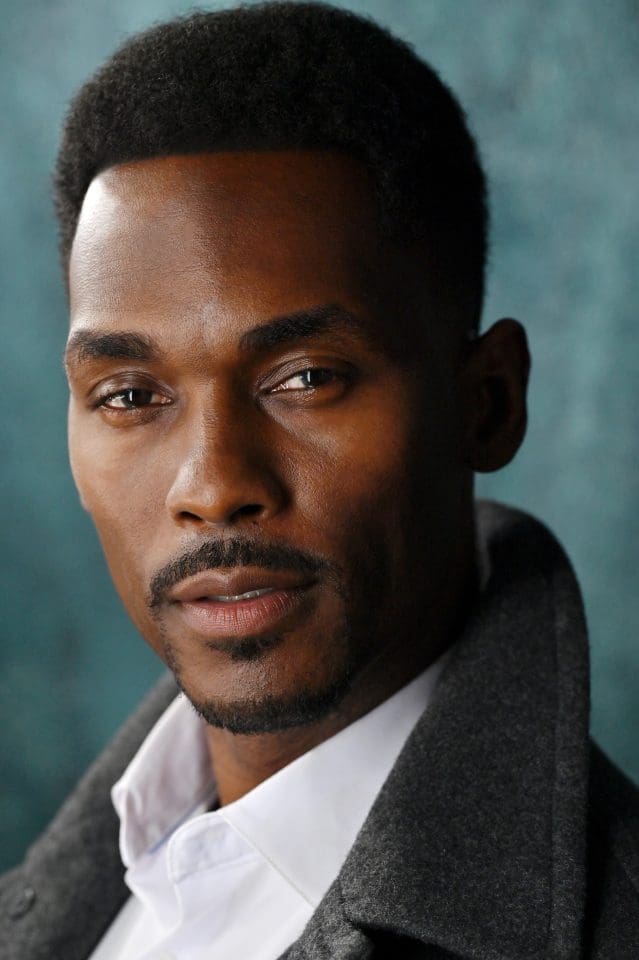
MS: So I got 2 leading ladies, I mean. Did you ever hear that? I mean, just imagine, now that you have been leading ladies. What’s it feel like, Miss black, to know that you are now a leading lady, and you can say, yes I was a leading lady in this movie. What’s that conversation like when you look in the mirror? Obviously red carpet and know that you are a leading lady now.
LB: That felt good. That felt really, really, really good. I’m grateful, to be a lead in this project was really good. ‘Cause I feel like I led. I feel like I took control of my character, and I feel like a lot of women will be able to see themselves in me, and that’s what a lead is supposed to do. Take charge. So I’m happy about that.
MS: I like that and Patrice, when you thought about that. Who in your mind, with all these wonderful black women that didn’t get enough shine? Didn’t get all of you are young can be in 40 or 50 movies if you choose, and God bless! But knowing that you were there. Who do you think about? And just say, thank you for being in that space until I could get here. Who comes to mind?
PC: I only started doing television about 5 years ago. I had a 10 year career on Broadway before that. And it was there that I learned what a lead is from several different people, where the leading wasn’t really about what was happening on set or on the stage or at rehearsal, as far as the script or the song or the dance is concerned. It was about making sure everybody was okay and making sure that everybody had what they needed. That everybody was taken care of in the best way that they could be, more about morale, camaraderie, being like the cruise director of it all.
And I have to say, one of the people that did that for me was Jennifer Hudson. I later went on to sing the background for her. Excellent, excellent, excellent experience as a leader and every single thing I’ve ever done with her. I think that alone is the reason why she’s an EGOT, because she is a leader. I’m not even. I don’t even. Sure she can sing. She can act. She can do those things. Sure. But her leadership, what nobody else sees is what matters. And so, that’s what I tried to take.
Along with my performance was making sure we kept it funny on set as much as we could. I was there, I mean every single scene. The days were 24 hours long and I worked every single day and I just try my best to keep women like Jennifer Hudson, also Courtney B. Vance, who played my dad and and my first time being on television as a series regular, that type of leadership, the things that he was always doing, always taking pictures, always sending funny stuff, or finding other ways to connect.
We didn’t get to hang out a whole lot because we work 24 hours a day. But when we did get to hang out, we all came together. We shot ideas out of each other to hang out, to find ways to connect. So, that’s what leadership means to me and those would be the people that gave me that inspiration to lead in that way.
MS: Kevin, you think about the Denzels, you being the Denzel of the future. Holding up that whole equalizer and just being able to blaze this trail now. What does that feel like? For you? To know that that position is open. The lane is a little bit clearer and everybody is a little bit more vocal about even treatment, to Patrice is sharing about like, let it be fair, let it be honest and pay us, and give us glory. Knowing that there can be 20 Denzels now. What does that mean for black men in this space?
KS: Well, just first of all, given, paying homage to Denzel because and it won’t be 20 of them. But I will say just for my name to even be mentioned with his name. I mean, there’s a lot of work to be done, but I definitely understand what you’re saying. Just the fact that himself and one of my favorite actors, David Oyelowo, just opened up the doors for us. It feels good. It feels really, really good, because we can see it. We can see the road ahead, and we know that it’s definitely obtainable.
Lewis Gossett, Jr. who just passed away, being fortunate enough to meet him and speaking to him and asking him what gave him longevity. And pretty much, he said, you got to know that you want it, and there’s going to be a lot of pitfalls. But you just gotta know that you not only want it, but deserve it. And so, I hold what he said, dear to my heart, because it’s something that I know, that I want. Something that I know, that I’m going to have, and I continue to have as I grow but it’s a blessing.
It’s a blessing to know that in this day and age, us as black men and black women can really be a voice in entertainment, can really be heard. We can be doctors and lawyers. We don’t just have to be the drug dealers. We can play roles of substance. So. I’m blessed. I’m blessed and yeah, we just gotta keep going and believe in ourselves.
MS: Jared, last question. if you had to give a speech at FAMU or Clark, and you were gonna Talk about the role you want them to blaze in being some of the biggest, best actors on stage and off. What would you kind of give them as kind of keys to success that you’ve experienced by working with this great group of brothers and sisters here?
JW: Oh, man! So, I would tell my FAMU alum, I’m a rattler and all my Morehouse, Howard folks, all love for the HBCUs. I would tell them to just always listen to your heart. Be honest with yourself. Don’t be afraid to maybe derail a little bit, but still keep your eyes ahead towards the goal of being an actor or writer, or whatever type of artist you want to be and also have fun. I mean, what we do is fun. Understand that the audition, yeah, there might be some auditions you’re not feeling, and as you grow you get the opportunity to turn things down.
But an audition is an opportunity for someone who probably doesn’t know you, who you haven’t met, to see you in this character, or see you in a different light, even if it’s the tenth audition, and you still haven’t booked. So, I would encourage people to pursue their passions persistently and enjoy the journey. Keep that artistic craft, or desire. Always that either in your forefront, right ahead of you or in your peripheral, and enjoy it. Have fun. Make adjustments as you move on, and just have that faith that you gon’ continue to be blessed if you honor that journey, the way that you should.
MS: Patrice, go ahead, tell everybody what they need to tune into and what they need to support. The couch, give them the whole 411 where they can see it.
PC: Oh, so you can catch “For What It’s Worth” on BET+ and it will be coming on BET and BET Her soon. yeah, stream it, play it whenever you want.
LB: Big Up.
PC: Come back to it, watch it again.
LB: Again.
KS: And again.
MS: Kevin. Big ups, big ups, love you guys great job. Thanks for hanging out here in starts studio in rolling out. You guys are great. You’re making a difference in our community. So, continue to heal us and help us. I’m Munson Steed with rolling out. Thank you so much.
KS: Thanks for having us.
LB: Thank you. I appreciate it.
JW: Thank you, Munson.



